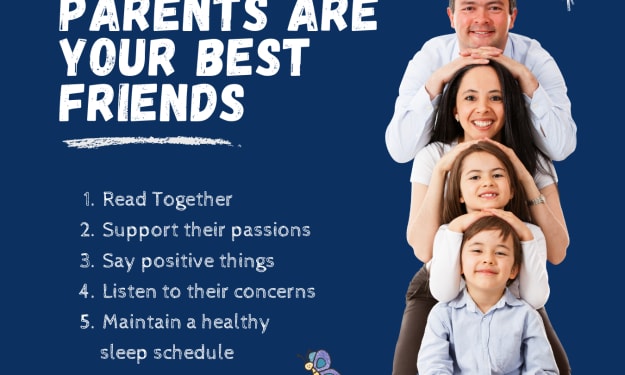Kids Stress
Helping kids manage stress

Children and adolescents can experience stress just like adults do. Stress in kids can come from a variety of sources, such as academic pressure, social issues, family conflicts, health problems, and environmental stressors. Here are some common signs of stress in kids:
Changes in behavior: Stress can cause children to become irritable, angry, or moody. They may also become more withdrawn and avoid social interactions.
Changes in sleep patterns: Stress can disrupt a child's sleep, causing them to have trouble falling asleep or staying asleep.
Physical symptoms: Stress can cause headaches, stomachaches, and other physical symptoms in children.
Changes in eating habits: Stress can cause children to overeat or under-eat, which can lead to weight gain or weight loss.
Academic problems: Stress can affect a child's ability to concentrate and perform well in school.
Here are some tips for helping kids manage stress:
Listen to your child: Encourage your child to talk about what's bothering them and listen without judgment.
Provide a stable environment: Make sure your child feels safe and secure at home and in their daily routine.
Teach relaxation techniques: Encourage your child to practice relaxation techniques such as deep breathing or meditation.
Encourage physical activity: Exercise can help reduce stress and improve mood.
Seek professional help: If your child's stress is severe or long-lasting, consider seeking professional help from a mental health professional.
Kids can experience stress for a variety of reasons, including academic pressure, social challenges, family issues, health concerns, and more. Common sources of stress for kids can include exams, school projects, fitting in with peers, dealing with changes at home or in their environment, and coping with emotions.
It's important to recognize signs of stress in kids, which can include changes in behavior or mood, such as becoming irritable, anxious, or withdrawn. Physical symptoms like headaches, stomachaches, or trouble sleeping may also be signs of stress.
Parents and caregivers can help kids manage stress by providing emotional support, setting realistic expectations, encouraging healthy habits like exercise and sleep, and helping them develop coping strategies like deep breathing, mindfulness, or talking about their feelings. It's also important to create a positive and supportive home environment and to seek help from a mental health professional if necessary.Yes, families play a crucial role in helping to treat a stressed child. Children look to their parents and caregivers for guidance and support, and a supportive and nurturing family environment can help to reduce stress and build resilience.
Families can help their stressed child in several ways. First, they can provide a safe and supportive space for the child to express their feelings and talk about their worries. This can help the child feel heard and validated, and can also help the family better understand what may be causing the child's stress.
Families can also help by providing a structured routine that includes time for relaxation, play, and physical activity. This can help the child feel more grounded and less overwhelmed. Additionally, families can help the child learn healthy coping skills like deep breathing, mindfulness, and positive self-talk.
Finally, families can seek professional help if the child's stress is severe or long-lasting. A mental health professional can provide additional support and guidance for the family and can help the child develop more effective coping strategies.
Helping stressed kids find happiness is an important part of reducing their stress levels. Here are some strategies that can help:
Encourage physical activity: Exercise and physical activity are great stress relievers and can help boost mood and energy levels. Encourage your child to engage in physical activities that they enjoy, such as sports, dance, or yoga.
Practice mindfulness: Mindfulness can help children develop awareness of their thoughts and emotions, and can help them feel more calm and centered. Encourage your child to try mindfulness practices like deep breathing, meditation, or yoga.
Spend time in nature: Spending time in nature can be calming and restorative. Take your child on walks, hikes, or bike rides in nature, or encourage them to spend time playing outside.
Foster positive relationships: Positive relationships can provide support, validation, and happiness. Encourage your child to spend time with friends and family members who are positive and supportive.
Celebrate accomplishments: Celebrate your child's accomplishments, no matter how small. This can help boost their self-esteem and sense of well-being.
Focus on the positive: Encourage your child to focus on the positive aspects of their life and to practice gratitude. This can help shift their mindset from one of stress to one of positivity and happiness.
Remember that every child is different, and what works for one child may not work for another. Be patient and persistent in finding strategies that work for your child, and seek the help of a mental health professional if necessary.





Comments
There are no comments for this story
Be the first to respond and start the conversation.